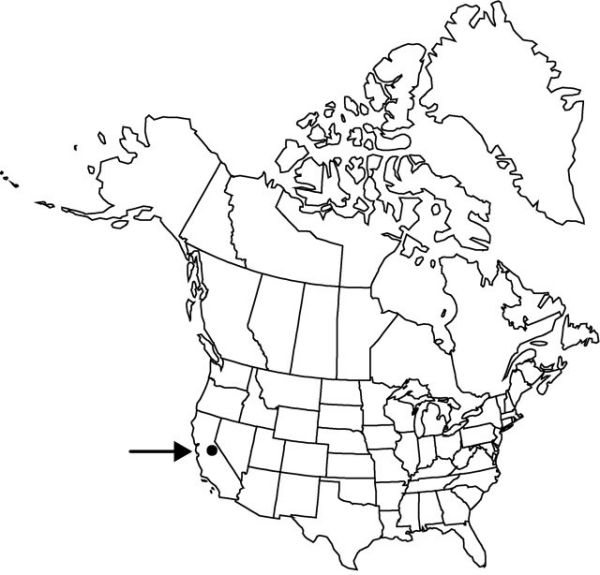Erythronium taylorii
Madroño 44: 360, fig. 1. 1998.
Common names: Taylor’s fawn-lily
Revision as of 22:16, 27 May 2020 by imported>Volume Importer
Bulbs narrowly ovoid, 40–70 mm, often forming sessile offsets. Leaves 18–35 cm; blade green, elliptic to oblanceolate, margins wavy. Scape 25–40 cm. Inflorescences 1–4(–8)-flowered. Flowers: tepals white, proximal 1/2–2/3 bright yellow, becoming pinkish in age, lanceolate, 25–45 mm, inner auriculate at base; stamens 10–16 mm; filaments yellow, slender; anthers cream colored; style white to cream, 9–11 mm; stigma ± unlobed or with lobes shorter than 1 mm. Capsules obovoid, 2–4 cm.
Phenology: Flowering spring (Apr–May).
Habitat: Forest openings, rocky ledges
Elevation: 1300–1400 m
Discussion
Erythronium taylorii is known only from Tuolumne County in the central Sierra Nevada.
Selected References
None.
Lower Taxa
None.
